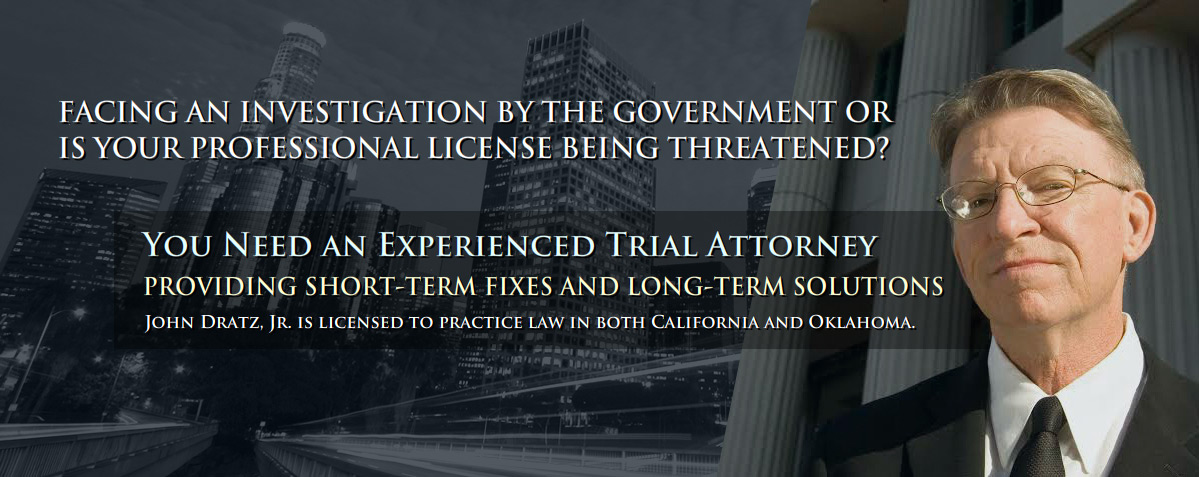Almost all professions are governed by administrative agencies who set rules for admission to the profession and who administer discipline to persons who have been licensed by the profession. For example, physicians are licensed by the Medical Board of California, nurses by the Board of Registered Nursing and by the Board of Licensed Vocational Nursing and Psychiatric Technicians, Acupuncturists by the Acupuncture Board and hairdressers by the Board of Barbers and Cosmetology. Clinical Laboratories are subject to the authority of different administrative agencies some of which are federal agencies. Disciplinary actions affecting a person’s admission to practice or ability to continue in a practice are handled in the administrative law setting which is different from the regular civil and criminal court system and require particular knowledge by the lawyer who handles this type of case.
Persons are most often denied licenses because of criminal convictions in their past. Persons have licenses revoked most often because of problems associated with substance abuse.
There is a regular administrative process common to most professions. If a person is denied admission to a profession the administrative process is similar to that when a licensing agency attempts to take a license away from a person. The main commonality is that the affected professional is almost always entitled to a hearing.
While a person whose admission to a profession is barred or a professional whose license is threatened have the right to have a lawyer at all stages of the process, such a person does not have the right to a court-appointed lawyer or a lawyer at government cost. In fact, the law is emerging to the point that the affected person may be ultimately liable for the government’s attorney’s fees and investigative costs.
You may represent yourself in these administrative actions but the deck is stacked against you. While the judges as a rule do their best to look out for the rights of the non-represented person, the judge’s will not present the case for the unrepresented person. It is your responsibility to secure witnesses and documentation, question witnesses and organize your case to comply with the administrative rules. This can be a truly daunting task for a person with no legal training. Also, you are expected to know the law and the procedures. The government lawyers are highly experienced; this is how they make their living. While the government lawyer may be a good and ethical person, the government lawyer’s first duty is to their client and their client is the agency keeping you from getting your license or trying to take your license away from you.
If you can afford to hire a lawyer, you should hire a lawyer. Even if the government attorney offers you a deal that allows you to keep your license, there will be many strings attached. The importance of having a lawyer skilled in negotiating with the government lawyers is perhaps the most important reason to hire a lawyer. Penalties can range from a slap-on-the-wrist to complete revocation of your license that you worked so hard to get.

